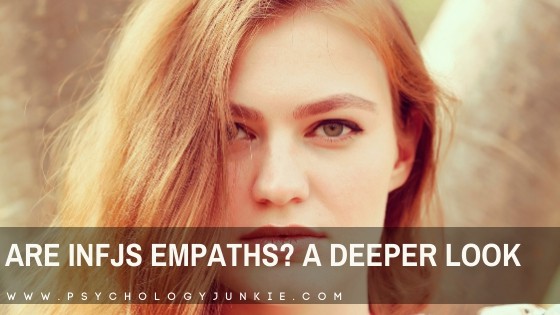INTJ vs ENTJ: What’s the Difference?
Are you trying to find out your personality type but you feel torn between INTJ and ENTJ? While some people think the differences between these two types should be obvious, it can actually be hard to tell the differences. Today we’re going to simplify the whole process to make it easy for you to discern which type is truly your best-fit type. Let’s get started!
Not sure what your personality type is? Get some direction with our personality questionnaire here. Or you can take the official MBTI® here.

INTJ vs ENTJ: What’s the Difference?

Estimated reading time: 11 minutes
1. ENTJs Are Doers. INTJs Are Thinkers.
If an INTJ and an ENTJ were stuck on a sinking ship, the ENTJ would be rallying the crew, barking orders, and already devising an escape plan while executing it. The INTJ? Probably staring at the horizon, mentally calculating wind resistance, buoyancy ratios, and alternative ways to prevent this future ever happening again.
INTJs: Intuiting Patterns and Carefully Planning
INTJs live in their heads. Their minds are bustling laboratories where ideas, strategies, and patterns are constantly being fine-tuned. They’re the type to stare at a problem, analyze every moving part, and only then (maybe) take action.
The INTJ is more like an architect standing over a drafting table, carefully designing a skyscraper before a single brick is laid. That’s an INTJ in a nutshell—strategizing, refining, and making sure no variable goes unaccounted for.
ENTJs: The Commanders of Action
Meanwhile, ENTJs? They’re already building the skyscraper. Sure, they did some planning—but they’re not about to sit around thinking when there are empires to build. Their motto? “Good enough—execute.” They thrive on movement, decision-making, and forward momentum.
If an ENTJ has an idea, you can bet they’re already halfway through turning it into a full-blown reality before an INTJ has finished their first round of analysis. They don’t just think about opportunities; they create them.
Which One Sounds More Like You?
Are you the visionary planner (INTJ), the person who needs to consider all the patterns and probabilities before making a move? Or are you the action-oriented go-getter (ENTJ), always pushing forward and figuring things out as you go?
2. ENTJs Are Task-Oriented. INTJs Are Contemplation-Oriented.
Both types love efficiency, but how they approach it is completely different.
INTJs: The Strategic Thinkers
INTJs are like chess grandmasters. Every move is calculated, every decision weighed. They want efficiency, but they’re willing to take extra time thinking before acting to ensure optimal results. Rushing into action without considering every angle? That’s a rookie move.
For INTJs, life is a long-term strategy game. The goal isn’t just to finish the task—it’s to make sure it was done right the first time, minimizing the need for rework. They’ll spend extra time in research mode, absorbing knowledge, connecting dots, and crafting the best possible plan before making a single move.
ENTJs: The Tactical Executors
ENTJs, on the other hand, are more like battlefield commanders. They think, yes—but only up to the point where they have enough data to make a call. Then? It’s go-time.
Efficiency, to an ENTJ, means getting things done. They don’t have patience for endless deliberation—analysis paralysis is the enemy. If a decision turns out to be wrong? No big deal. They’ll course-correct mid-action and keep charging ahead. Their drive to execute is so strong that they’d rather do and adjust than spend forever theorizing.
The Bottom Line?
- INTJs are knowledge-hungry strategists who need to understand everything before taking action.
- ENTJs are driven doers who take just enough time to strategize before diving in and making things happen.
If you’ve ever been accused of overthinking a decision? Probably an INTJ.
If you’ve ever been accused of steamrolling a project forward? Definitely an ENTJ.
3. ENTJs Are More Impulsive. INTJs Are More Calculated.
Decision-making is where these two types really start to diverge. Both like to have a plan, both want efficiency, and neither enjoys leaving things unresolved for too long. But when it comes to how they reach decisions? That’s where things get interesting.
ENTJs: The High-Speed Decision Makers
ENTJs make decisions fast—sometimes so fast they don’t realize they’ve made one until they’re already halfway through executing it. They trust their instincts, rely on their self-confidence, and believe that forward motion is always better than stagnation.
Picture a battlefield commander making split-second calls in the heat of war—there’s no time for endless deliberation. ENTJs thrive on that momentum. They don’t fear mistakes; they expect them, course-correct as needed, and keep charging ahead.
Of course, this speed comes with a trade-off. Sometimes their gut instinct isn’t right, and they end up making a decision they regret. But to an ENTJ, that’s a small price to pay for progress.
INTJs: The Deep Strategists
Now, INTJs? They’re the ones watching the battlefield from a high vantage point, analyzing every possible outcome before making a move. Their decision-making process is slow, methodical, and deeply calculated. They want to be sure before they act, even if it means losing a little time.
Where an ENTJ says, “Let’s go and fix problems as they come,” an INTJ says, “Let’s make sure this is actually the best move before we commit.”
The downside? Sometimes they get stuck in analysis paralysis. They want efficiency, but their need to consider every angle can lead to missed opportunities. If an INTJ takes too long to act, the game might change before they even step onto the field.
Which One Are You?
Ask yourself:
- Do you trust quick decisions and believe momentum is more important than perfection? (ENTJ)
- Or do you prefer to analyze and refine until you’re sure you’re making the best choice? (INTJ)
4. ENTJs and INTJs Multi-Task Differently
Multi-tasking is another major battleground where these two types take completely different approaches.
ENTJs: The Jugglers
ENTJs love a fast-paced, high-energy environment. They thrive when they have multiple balls in the air, jumping between projects, meetings, and ideas without skipping a beat.
Why? Because they’re extroverts. Their brains like the constant influx of external input, and they’re naturally wired to keep track of several moving pieces at once. Picture a CEO pacing the office, handling calls, firing off emails, and outlining a new strategy—all at the same time. That’s peak ENTJ energy.
That said, even ENTJs have their limits. If they’re Highly Sensitive People (HSPs), for example, they might find too much external chaos overwhelming. But in general? ENTJs handle multi-tasking like pros.
INTJs: The Deep Focusers
INTJs, on the other hand, would rather die than juggle ten tasks at once.
They work best when they can dive deep into one thing at a time—fully immersing themselves without distractions. Their brains don’t want to process a million different inputs; they want to take something apart, analyze it from every angle, and put it back together better than before.
Interruptions? Multi-tasking? Rapid-fire demands? That’s the worst kind of chaos for an INTJ. They get frustrated when pulled away from deep work, and constant task-switching drains their energy fast.
So, Which One Sounds More Like You?
- Do you thrive in a dynamic environment, bouncing between multiple projects without missing a beat? (ENTJ)
- Or do you prefer to work on one task at a time, diving deep and shutting out distractions? (INTJ)
Neither way is wrong—but knowing your comfort level with multi-tasking can be a huge clue in figuring out your best-fit type.
5. INTJs Are More in Tune with Their Values and Feelings Than ENTJs
At first glance, both INTJs and ENTJs might seem like emotionally detached strategists—cool, logical, and always three steps ahead. But dig a little deeper, and you’ll find that one of them has a much stronger connection to their values and inner world.
INTJs: The Internal Compass
INTJs might not wear their emotions on their sleeve, but make no mistake—they feel things deeply. Their inner world is shaped by a strong sense of personal values, and once they decide something is right (or wrong), good luck trying to change their mind.
They know what they want, what they stand for, and what motivates them, even if they don’t always voice it. The misconception that INTJs are emotionally detached comes from the fact that they don’t broadcast their feelings like some other types do. Instead, they process emotions internally, quietly aligning their actions with what feels right to them.
ENTJs: The Taskmasters
Now, ENTJs? Their dominant concern is execution—what needs to be done, how to do it, and how fast they can get it done. Their Introverted Feeling function (Fi) is way down at the bottom of their cognitive stack, which means emotions and values tend to take a backseat to logic and efficiency.
That doesn’t mean ENTJs don’t have feelings—it just means they often don’t notice them until they become impossible to ignore. They might go full steam ahead on their goals, dismissing emotions as irrelevant… until one day they’re blindsided by a wave of unprocessed feelings they didn’t see coming.
Which One Sounds Like You?
- Do you instinctively know your values and motivations, even if you don’t always express them? (INTJ)
- Or do you tend to focus on tasks first, only realizing you’ve neglected your emotions after they hit you like a ton of bricks? (ENTJ)
6. ENTJs Respond Faster to External Stimuli
Ever noticed that some people seem to have an answer for everything—fast? While others pause, analyze, and mentally piece together the perfect response before speaking? That’s the difference between an ENTJ and an INTJ in action.
ENTJs: The Verbal Processors
ENTJs don’t just think—they externalize their thoughts in real-time. They’re comfortable bantering out loud, sketching out ideas on a whiteboard, or debating their way through a problem. Their brains are wired for rapid response, and they don’t mind refining their thoughts as they go.
That’s why ENTJs often seem quick, decisive, and adaptable. They’re not afraid of fast-paced environments where they have to think on their feet and jump straight into action. Even if they don’t have all the answers, they’re confident enough to figure it out as they go.
INTJs: The Internal Processors
Meanwhile, INTJs are not about that rapid-fire life. If you ask them a question, don’t be surprised if they pause for an uncomfortably long time before answering. That’s because they’re busy running simulations in their minds, weighing every possible angle, and making sure what they say is correct before they say it.
For INTJs, quality beats speed every time. They’d rather take an extra minute (or ten) to give a fully thought-out response than blurt out something half-baked. This can sometimes make them seem slow to react, but in reality, they’re just making sure their response is bulletproof.
Which One Are You?
- Do you process your thoughts externally, talking through ideas and making quick decisions as you go? (ENTJ)
- Or do you sit with your thoughts, carefully considering your response before speaking? (INTJ)
If you’re the kind of person who blurts out half an idea before realizing you don’t fully know where you’re going with it? Probably an ENTJ. If you hate being put on the spot and would rather have time to think before responding? Classic INTJ.
7. INTJs Are Drawn to Abstract Concepts. ENTJs Seek Out Action-Oriented Structure.
Both ENTJs and INTJs are future-focused visionaries—but how they approach the future is wildly different. One is constantly swimming in a sea of abstract concepts, and the other is busy building the ship to get somewhere.
INTJs: The Philosophers of the Future
For INTJs, abstract thinking isn’t just a hobby—it’s oxygen. Their dominant function, Introverted Intuition (Ni), means they spend most of their time inside their own minds, connecting dots, spotting patterns, and unraveling the hidden why behind everything.
They’re the ones asking existential questions like:
- What’s the true nature of reality?
- What else is going on beneath the surface?
- How does this one concept fit into a greater universal pattern?
And yes, they’re absolutely willing to spend hours, days, or even years contemplating these questions—often in complete silence.
INTJs don’t just love theories; they live for them. They enjoy pulling apart ideas, testing them mentally, and refining their understanding of how the world works. Sure, they like structure and execution too, but their first instinct is always to explore the depths of why something is the way it is.
ENTJs: Let’s Start NOW
Now, ENTJs? They’re more likely to be out there building life than contemplating it.
While ENTJs can engage in abstract thinking, they don’t dwell in it the way INTJs do. That’s something they prioritize in their (often very limited) leisure time. Their dominant function, Extraverted Thinking (Te), is all about making things happen. If a concept isn’t actionable, it’s basically useless.
They focus on:
- What’s the goal?
- What’s the most efficient way to achieve it?
- How do we organize and structure the external world to make it happen?
If INTJs are the deep, theoretical thinkers, ENTJs are the ones translating those theories into actual results. They’re all about weighing pros and cons, making firm decisions, and keeping everything moving forward—fast.
Which One Sounds Like You?
- Do you get lost in theoretical rabbit holes, constantly questioning and refining ideas? (INTJ)
- Or do you prefer actionable structure, weighing options quickly and executing strategies to get things done? (ENTJ)
Both types are strategic, but INTJs are drawn to understanding concepts, while ENTJs are drawn to applying them.
What Do You Think?
We invite you to share your thoughts and experiences in the comments below. Was this article helpful in distinguishing between INTJ and ENTJ? What type did you identify with more after reading the differences outlined? Do you have any other insights or advice to share about these MBTI® types or about your journey in understanding yourself better? Let us know in the comments!
Discover more about your personality type in our eBooks, Discovering You: Unlocking the Power of Personality Type, The INFJ – Understanding the Mystic, The INTJ – Understanding the Strategist, and The INFP – Understanding the Dreamer. You can also connect with me via Facebook, Instagram, or Twitter!









Great article! To be honest however, determining between ENTJ and INTJ accordingly is a bit of a mixed bag. I believe that my Ni and Te are fairly balanced. Furthermore, I pride myself on my convictions and staying true to myself and my ideals. Thus, it is easier for me to determine my type based on my weaknesses.
1) Temperamental:
– Prone to anger, short-tempered, irritable (Choleric temperament);
– Prone to raising my voice/shouting;
– Impatient, occasionally intolerant;
– Incidentally, I come off as intimidating to others;
2) Negligent to self-care;
3) Forgetful about routine and maintenance tasks;
4) Incidentally impulsive;
5) Bottling up emotions until they erupt;
Conclusion: ENTJ.
To be honest, it is a bit more nuanced than my previous comment suggests. Although according to the MBTI step II Interpretive Report (session) I have taken I am a clearcut ENTJ, when I answer a questionnaire on cognitive functions (like Dario Nardi’s Keys2Cognition) I mostly score as an intuitive dominant type (Ni). I am also very idealistic and have strong values. My wife thinks I am a bit delusional, especially when I get emotional over fictional characters (Pitou!!!). Maybe it is because I am a ENTJ enneagram sx 7 (?). Or like Dario Nardi calls it: the creative subtype (ENTJ-C).